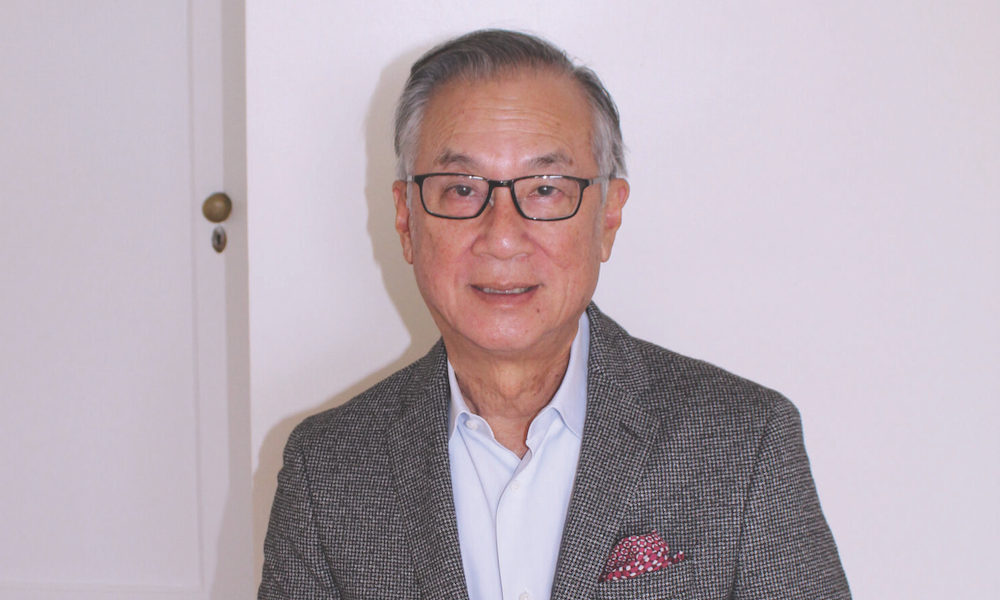Dealing with changes in technology, regulation, competition and customer expectations?
In many ways, the telecommunications industry is currently undergoing more change than any other field in business today. There are four major factors driving these transformations: regulation, technology, increased competition and heightened customer expectations for telecoms companies around the world.
On the technology side, there has been a huge shift from voice revenue to digital and data over the last five years. Over the coming five years, the next big shift will be automation, to streamline processes that currently rely on multiple and often incompatible data sources from network providers, engineers, sales representatives and customers. Telcos are placing great emphasis on developing analytics skills to gain a better understanding of the huge amounts of data they collect daily. The industry is beginning to see significant investments in customer and business analysis, to understand revenue and net promoter score (NPS) drivers and to improve customer value management. Each market shift requires new skills, new ways of working, a new operating model and a new culture. Transforming your business every five years is no easy task.
Moving on to regulatory changes: these are frequent, inconsistent and region or country-specific, often a challenge for an international company operating in different geographies. Regulators are also struggling to keep up with the pace of technological advancement. In some markets, industry taxes can be a hefty source of revenue. Some governments continue to issue new operator licences, while other regulators are reducing the number of licences in markets where only one or perhaps two operators are viable. Other governments are keeping a close eye on customer demands and acting on their behalf. In South Africa, for example, the regulator is seeking to change the rules, so that unused data cannot be sold again to the same customer at the end of the validity period. In short, the sands are idiosyncratic and constantly shifting.
Competition is particularly challenging. Intense between incumbents, the industry is also suffering from new entrants in mobile communications and adjacent businesses who do not need to play to the same rules as the telcos. These new entrants are referred to as over-the-top (OTT) players, as they ride on top of the network. Telcos need to obtain licences and meet a range of obligations in order to operate, for example cover the whole population including rural areas. They need to meet regulatory standards and undertake considerable expenditure to do so. OTTs enter and disrupt the market, offering services which are often in direct competition to those provided by telcos, without the requirement of operating licences and investment. OTTs include the likes of Facebook and WhatsApp.
Recent reports also show that technology companies are developing vertically integrated models to try to inoculate themselves against supply chain disruptions. Jack Ma’s tech giant Alibaba is working on a neural network chip capable of carrying out artificial intelligence functions such as facial and speech recognition with substantially less power, and reportedly pouring $15bn into R&D. Such developments only serve to make competition between traditional telecoms operators and tech companies increasingly one-sided, as they will not only continue to grow faster than telcos, but also attract the cream of the talent.
Lastly, and in common with many other industries, customer expectations are on the constant rise. Owing to their easy access and availability, OTTs have significantly influenced user habits and changed customer expectations around mobile communication services. Just think about the real-time sharing nature of Facebook, which suggests connections for you among a network, tailors adverts to your search history and, above all else, is free. If Facebook can understand a customer so well, why not the telcos?
MTN challenges
MTN currently operates in: Botswana, Cameroon, Cote d’Ivoire, Nigeria, Republic of Congo (Congo-Brazzaville), Rwanda, Kenya, South Africa, Swaziland, Uganda, Zambia, Iran, Afghanistan, Benin, Cyprus, Ghana, Guinea Bissau, Guinea Republic, Liberia, Namibia, Sudan, South Sudan, Syria and Yemen.
There are certain challenges that are peculiar to the social, economic and political environments of these countries. Some of these markets are sanctioned countries, for example, whilst others are experiencing protracted civil and political unrest.
In Nigeria, the fine imposed on MTN’s local unit in 2015, the biggest ever given globally to an operator, is a matter of public record. In response, MTN has had to fortify its controls and create dedicated functions to centrally and regionally provide guidance and support to its operations.
MTN drove mobile and, with it, the adoption of mass communication on the continent. The next revolution is bringing the internet to the mass market in Africa and the Middle East. The switch from voice to data, which raises less revenue, and packaged digital services including much-discounted voice, has required the company to undertake a fundamental re-think of the business.
MTN has made certain choices to compete in the data and digital space, by extending its offerings to include mobile financial services, e-commerce and so on. This means they now compete directly, for example, with banks (mobile money), in addition to the OTT players.
And the stakes are rising all the time. There are new opportunities for 4G data and the demand for connectivity is skyrocketing across Africa – in both urban and rural areas. This is happening at a time when early 5G networks are already being rolled out in some US cities.
The Tokyo Olympics in 2020 will reportedly present the very first showcase of the full range of what 5G technology will be able to offer.
Intermediation and spiralling demands
Meanwhile, in the emerging world, lack of spectrum remains the Achilles heel. Spectrum is the highway for data that operators use. As customers’ insatiable appetite for data continues to grow, there’s massive competition for additional spectrum across most of MTN’s markets. The situation is getting dire. In some markets, spectrum issues, rather than strong business fundamentals, are driving key telecoms consolidation deals. While the industry awaits clarity on spectrum policy, operators and new entrants are taking advantage of regulation which allows sharing of passive infrastructure, and trading and refarming of spectrum (selling it back to operators). Similarly, with towers (towers are base stations placed all over the country to get coverage), intermediate specialist tower companies are emerging, investing in towers, terrestrial fibre and data centres, and leasing the services back to the operators.
Satisfying spiralling customer demands has led MTN to define and deploy customer blueprints across the group’s companies, to further streamline key functions and embed a common platform. Mobile connectivity is also improving access to essential health, social and financial services. Last year, for example, MTN renewed its partnership with Unicef to provide Ghanaians with essential information about health and social issues. The initiative was established in 2015 to alleviate the anxiety of Ghanaians during the outbreak of Ebola and cholera. Through a digital platform known as Agoo, Ghanaians had the opportunity to call and receive responses to their queries in critical moments during health epidemics. Now, over 2,000 calls are received per day, providing information to over 725,000 callers per year. The service is free for MTN subscribers. Similarly, in Iran, following a regional earthquake, MTN maintained the network without any outages, and activated free calls for subscribers in surrounding cities. Other operators’ subscribers were also able to roam on MTN’s network if they faced issues with their own services. MTN has also expanded its mobile money service, including high interest-bearing savings accounts, increasing access to micro-insurance, collecting and disbursing retirement grants and enabling payments for water and electricity services.
MTN continues to work with stakeholders both inside and outside of the traditional MTN subscriber base, such as governments, social enterprises, healthcare providers, and others, to explore new areas of need and to support relevant initiatives. And MTN has placed a significant portion of its shares in its local entity in Ghana through public share offers, to ensure greater participation by the Ghanaian people. A similar process is underway in Nigeria and expected to conclude by end of 2018.
People – the core goal
To meet the challenges outlined, MTN must source new tools, technologies and skills. Sometimes the new skills benefit the customer or enable MTN to comply with regulatory requirements, but don’t bring new revenue; they are the increasing cost of staying in business. For MTN, finding and attracting the new required skills is no small feat, as its markets span countries operating under sanctions, civil unrest, and deflated economies and currencies. New skills are needed to drive the data adoption model and deliver on this strategy. New capabilities are also required to address changing customer needs; and greater systems’ agility is necessary to deal with transforming markets and Big Data.

The culture and leadership style have to be agile to respond to these turbulent times. Leaders need critical skills, such as self-awareness, openness to feedback, communications and the ability to lead leading in culturally diverse environments. The culture has to be founded on values and behaviours that will drive an adaptive, flexible, innovative and resilient company. MTN needs to respond with speed, be flexible and drive innovation. To this end, they have been building flatter structures based on customer needs, piloting cross-functional projects and building global communities of practice.
A whole new talent model
MTN and its learning and development partner, Duke Corporate Education, are painfully aware that revising and refining existing roles is woefully inadequate to face the coming tsunami of change in the world of work. Competing with OTTs for new talent is the first small ripple on the shore. At the generic level, people need to be trained to be creative, adaptive, problem-solvers. Yet as more and more jobs are automated, more specific, completely new roles are emerging, such as scrum master (able to assemble multi-functional teams and disband them once the task is completed and move to the next team); and perception engineer (tracking and sense-making virtual behaviour). There is no blueprint for hiring or training for these new roles.
So, what’s the answer? Alongside improving current and generic capabilities – a refresh – MTN and other African companies need simultaneously to start imagineering the new jobs of the future – a restart. Employers need to get comfortable with the gig economy and work with a variety of employment models, not all full time and not all forever. And the time to start is now. MTN challenges? This is just the beginning of the next phase.
— Paul Norman is group chief human resources officer of MTN Group. Sharmla Chetty is president, Africa, and global managing director, Europe, at Duke Corporate Education
An adapted version of this article appeared on the Dialogue Review website.



